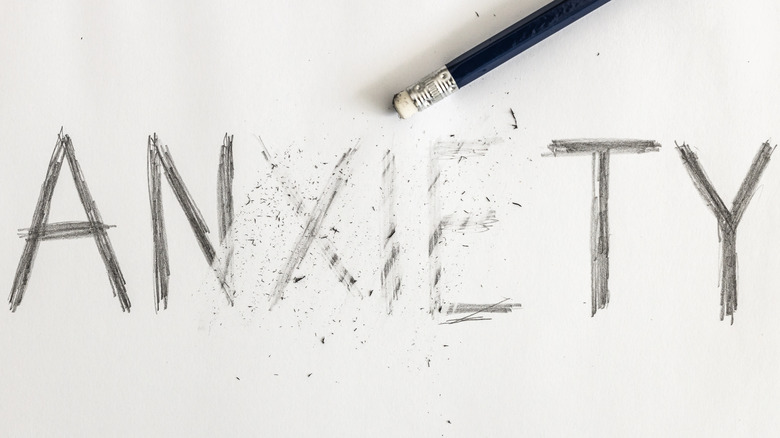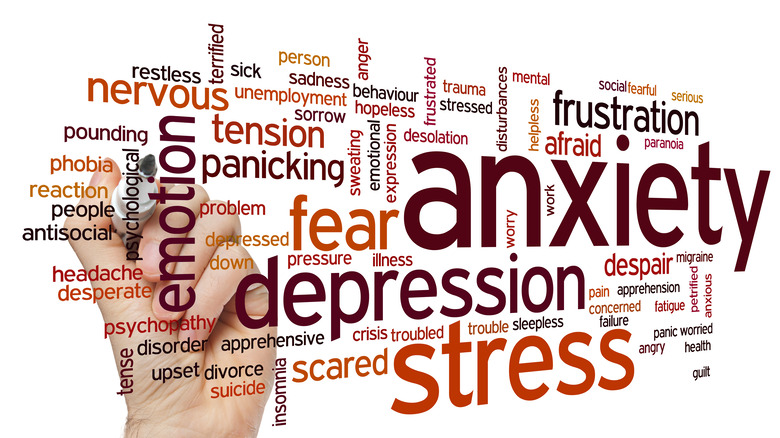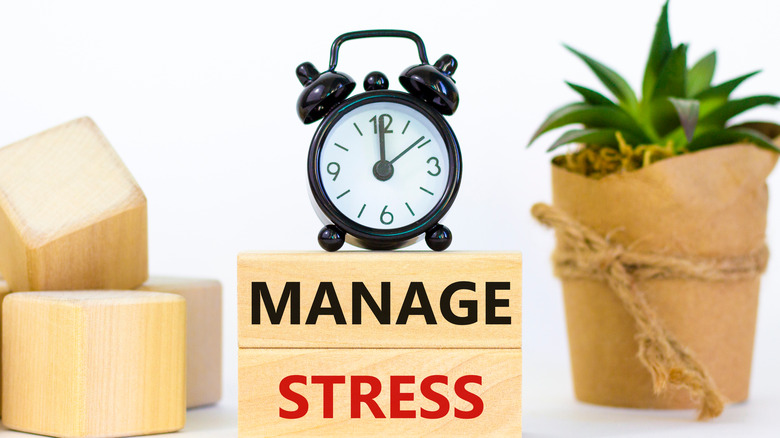Common Causes Of Anxiety
Anxiety can be a part of your everyday life you just get used to, or it can become something debilitating that has significant impacts on your life. To someone on the outside looking in, your anxiety over normal situations may seem extreme, or an outsider might be amazed at how you handle it all. Anxiety can come from one-time major events, or from simple things that physiological factors don't allow you to process correctly.
There are several types of anxiety disorders that can affect your life, including generalized anxiety disorder, society anxiety disorder or social phobias, and separation anxiety, according to the Mayo Clinic. It's even possible to have more than one type of anxiety disorder at the same time, which can make life extremely difficult. Some symptoms of anxiety include nervousness, sweating, trembling, poor sleep, trouble focusing, constant worry, and even gastrointestinal problems. All of these can be results from anxiety that can come from a variety of different causes.
Cortisol and anxiety are interconnected
Physiologically, anxiety is caused by cortisol, the hormone that regulates stress. Your body should naturally know how to balance your cortisol levels to your specific needs, but sometimes that doesn't happen and too much cortisol results in heightened anxiety, according to WebMD.
Cortisol is produced in your adrenal glands and cortisol receptors send signals to tell your body to make more or less cortisol, depending on your needs. However, sometimes something goes wrong and a traumatic event can cause your worry levels to go up, and therefore your cortisol levels do the same. The anxiety and the extra cortisol can lead to a variety of issues including weight gain, headaches, memory problems, and even heart disease. But cortisol levels that are out of balance can lead to mental health issues as well, including depression, and of course, heightened anxiety. But what outside triggers can cause this essential hormone to work incorrectly?
Some people are predisposed to anxiety
Genetic and personality factors can play a key role in whether someone feels unusual amounts of stress or anxiety. A person with a family history of mental health problems can be anxiety-prone, and often childhood traits can help predict whether you might have an anxiety disorder as you grow older, according to Beyond Blue.
Children who become embarrassed easily, are constantly looking for perfection, look to control situations around them, or are shy can often become anxious teens or adults. Of course, sometimes you can just be a shy kid or hold yourself to high expectations, but it's important to know what signs to watch out for. However, just because you are predisposed to have an anxiety disorder, does not mean you will have one. In addition, outside factors — some we can control and some that are outside our control — can play a key role in feeling stress and anxiety (via Healthline).
External factors can cause anxiety. Here's how to deal with them
There are times that the everyday things that happen in life can cause heightened anxiety that might be temporary, or might need treatment either through medication or therapy. Stress from work, pregnancy and birth, loss of a loved one, emotional or physical abuse, or a one-time traumatic event can cause our anxiety levels to skyrocket, according to Beyond Blue.
Thankfully, there are a variety of ways to treat anxiety that don't always require a professional, but do require you to make some changes in your life. Try getting more exercise, drinking less caffeine, eating more nutritionally balanced foods, and getting better sleep. You can also add meditation to your wellness routine, as well as finding emotional support from those around you. If those things don't work, you can always seek the help of a professional who can guide you to the right type of therapy and medications to give you a more peaceful life (via Healthline.)



